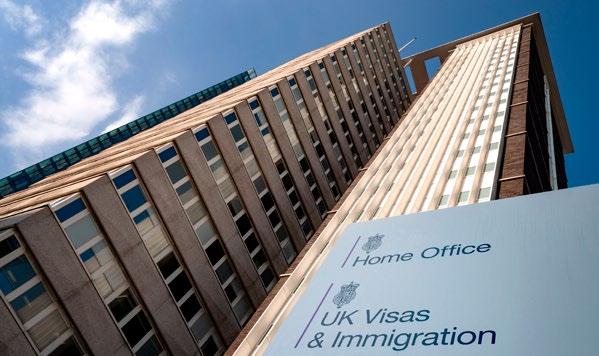3 minute read
Covid-19 saliva sampling test launched across Southampton
Next Article
A team from the University of Southampton is leading a programme, launched last summer, which evaluates regular Covid-19 infection testing for whole households. CPC members, including Professor Jane Falkingham, were involved in the first phase of the trial, advising on the weekly rollout of the tests.
Backed by the UK government, the programme involves a partnership of the University, Southampton City Council, and the NHS. The multidisciplinary team includes colleagues from Southampton’s Faculty of Medicine, as well as social statisticians and demographers from CPC and the University’s Social Statistics and Demography department.
In June and July 2020, the partnership trialled the testing method on a large number of households in the city on a weekly basis. Nearly 10,000 people took part in this successful first phase which showed that an at-home saliva sampling kit can provide a reliable method for largescale, regular testing and established systems to return results within 48 hours. It also provided further evidence for the accuracy of a rapid, lower cost ‘RT-LAMP’ laboratory test in detecting coronavirus.
The non-invasive saliva test allows easier testing of people of all ages and ensures that everyone in the household gets tested regardless of symptoms and on a regular basis. Initially, Southampton’s 800-strong GP-practice workforce were invited to take part, followed by some other essential key workers and some University of Southampton staff and students as the programme evaluated the logistics needed for regular testing of entire households. The second phase, launched in September 2020, evaluated the application of the convenient, non-invasive saliva test in educational settings, involving staff and students at the University of Southampton and staff and pupils from four local schools where this kind of testing offers the potential to avoid wholesale or long-term closures.
Throughout the first two phases of the programme, saliva samples were collected on a regular basis from participants and taken to the Animal and Plant Health Agency in Weybridge where they were tested using Optigene’s COVID-19 LAMP test. Results were returned no more than 48 hours later.
Experts from the University of Southampton and other partners will continue to analyse data in real time to understand the virus’ spread, and to simulate different scenarios as a way to inform decision-making around sustained periods of lockdown to help move the economy and society to a better state of normality.
Over 20,000 students, pupils and staff from the University of Southampton and the four schools were invited to participate in the second phase of the programme.
“By providing such testing in schools we aimed to give pupils, parents and staff confidence in the management of infection risk in schools,” explained Professor Keith Godfrey of the University of Southampton’s MRC Lifecourse Epidemiology Unit.
The details of those who test positive are shared with the NHS Test and Trace programme so contact tracing can start immediately.
Through testing University of Southampton students, arriving from across the UK and overseas, the partnership’s aim is to keep the infection risk low in Southampton and give confidence to students, staff and local communities.
Councillor Christopher Hammond, Leader of Southampton City Council, said: “Regular testing is a vital tool to help us manage the risk of Covid-19 infection in our communities. Thanks to the thousands of Southampton residents who took part in the first phase of this trial, we now have a much greater understanding of the potential for this promising new saliva test. The second phase is helping us to better understand how the test can be rolled out across different types of school and university settings. If we are successful, we hope to offer the testing programme to more settings in the near future”.
Harry Kutty, Headteacher at Cantell Secondary School and Chair of the Aspire Community Trust who represents the four schools involved in this phase of the trial, commented: “We’re really excited to be part of this innovative trial. Getting schools open and running safely and smoothly is our number one priority and anything that could potentially help give parents, teachers and staff confidence and avoid wholesale closures has to be a good thing. Hopefully what we learn as early adopters can help to develop this programme to be available to more schools and other settings in future.”
Professor Godfrey added: “Those taking part have helped pave the way for wider regular testing across the educational, community and business settings here in Southampton and more widely. What we have learned from the Southampton COVID-19 Testing Programme has informed national policy and coronavirus control measures elsewhere across the country.”
Further reading:
Further information can be found in the full report ‘Evaluation of the expanded Southampton pilot study (Phase 2) for use of saliva-based lamp testing in asymptomatic populations: Final report, 16th November 2020’ Keith Godfrey, Southampton COVID-19 Testing Pilot Programme (2020)











